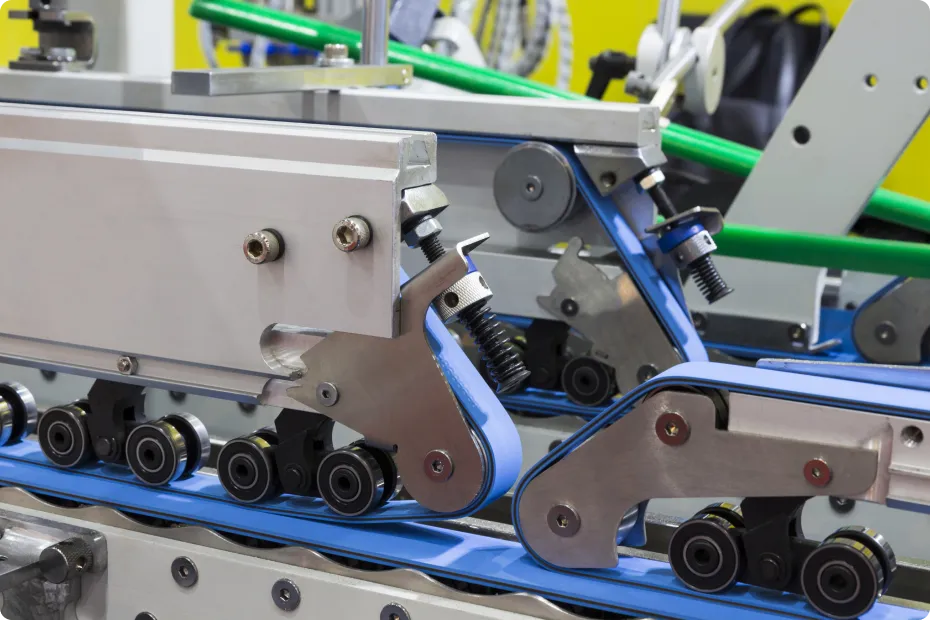Барный Инвентарь Купить — Выгода и Качество для Лучшего Обслуживания
The Use of Artificial Intelligence in Healthcare
Artificial Intelligence (AI) is transforming various sectors, with healthcare being one of the most promising fields. By automating processes, analyzing vast amounts of data, and providing predictive analytics, AI has started revolutionizing the way healthcare is delivered worldwide. The integration of AI technologies into healthcare can offer numerous benefits, from improved diagnosis to personalized treatment plans, ultimately leading to better patient outcomes.
Diagnostic Accuracy and Efficiency
One of the significant advantages of AI in healthcare is its ability to enhance diagnostic accuracy. AI algorithms can analyze medical images, such as X-rays, MRIs, and CT scans, with a level of precision that can sometimes surpass human experts. For instance, deep learning models have been trained to detect conditions like cancers or fractures much faster than traditional methods. Moreover, these systems can identify patterns and anomalies that might be missed by the human eye. Consequently, healthcare professionals can eliminate a significant amount of guesswork, leading to quicker and more reliable diagnoses.
This increased efficiency extends beyond diagnostics. AI can streamline administrative tasks, such as scheduling, billing, and patient management, allowing healthcare providers to focus more on patient care. Implementing AI systems can dramatically reduce waiting times for patients, improving overall satisfaction and health outcomes. This shift not only benefits patients but also optimizes healthcare facilities’ workflows. With the rising demand for efficient healthcare solutions, more professionals are looking to барный инвентарь купить for their operations.
Personalized Treatment Plans
Another area where AI shines is in creating personalized treatment plans. By analyzing a patient’s genetic data, past medical history, and current health conditions, AI can help healthcare providers design tailored treatment strategies. For example, precision medicine, which utilizes AI to analyze large datasets of patient information, allows clinicians to predict how patients will respond to specific treatments. This means that patients can receive medications and therapies that are specifically suited to their unique profiles, improving their chances of recovery.
Moreover, AI can assist in monitoring patient progress and adjusting treatment protocols in real-time. Machine learning algorithms can track patient responses to treatments and flag any adverse reactions, enabling doctors to make timely decisions. This proactive approach can lead to better health outcomes and minimize the risks associated with ineffective treatments. As hospitals adopt more advanced technologies, the integration of AI into their systems places them at the forefront of optimizing patient care.
Future Prospects and Challenges
The future of AI in healthcare looks promising, yet there are challenges to consider. Data privacy is a growing concern; with vast amounts of sensitive health data being collected, ensuring that this information is secure is paramount. Healthcare providers must comply with strict regulations to protect patient information while leveraging AI technologies. Furthermore, the integration of these advanced systems into existing healthcare infrastructures requires significant investment, training, and adaptation from healthcare professionals.
Despite these challenges, the potential benefits of AI make it an area of intense focus. Policymakers and healthcare professionals are increasingly recognizing the importance of investing in this technology. As the healthcare sector strives for enhanced efficiency and customer satisfaction, it is crucial for organizations to explore new technologies that can significantly impact patient care, like AI. For those looking to enhance their healthcare operations, https://kok.one/catalog/barnoe/ can provide essential resources.
Conclusion
In conclusion, the integration of AI into healthcare systems is set to become the cornerstone of future medical innovations. By improving diagnostic accuracy, personalizing treatment plans, and streamlining administrative tasks, AI holds the key to addressing some of the most pressing challenges in the healthcare sector today. As this technology continues to evolve, its implementation will likely play a crucial role in defining the future landscape of healthcare.











